Basic Arithmetic Normal Addition & Subtraction Worksheets for Ages 4-8
6 filtered results
-
From - To
Enhance your child's math skills with our "Basic Arithmetic Normal Addition & Subtraction Worksheets" for ages 4-8. Designed to build foundational math abilities, these engaging worksheets offer numerous exercises that develop proficiency in simple addition and subtraction. Each sheet challenges children with various fun problems tailored to their learning levels, ensuring gradual progress. Ideal for home or classroom use, these resources are instrumental in nurturing mathematical confidence and fluency in young learners. Visit our website to give your kids the tools they need to succeed in early mathematics and set a solid groundwork for future learning.
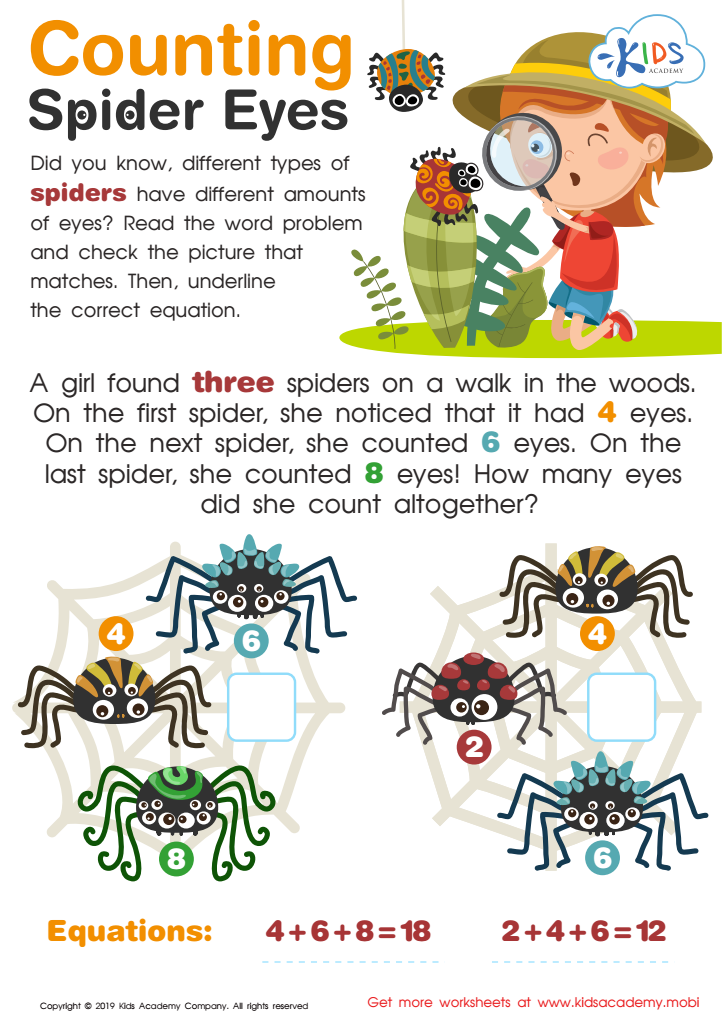

Counting Spider Eyes Worksheet
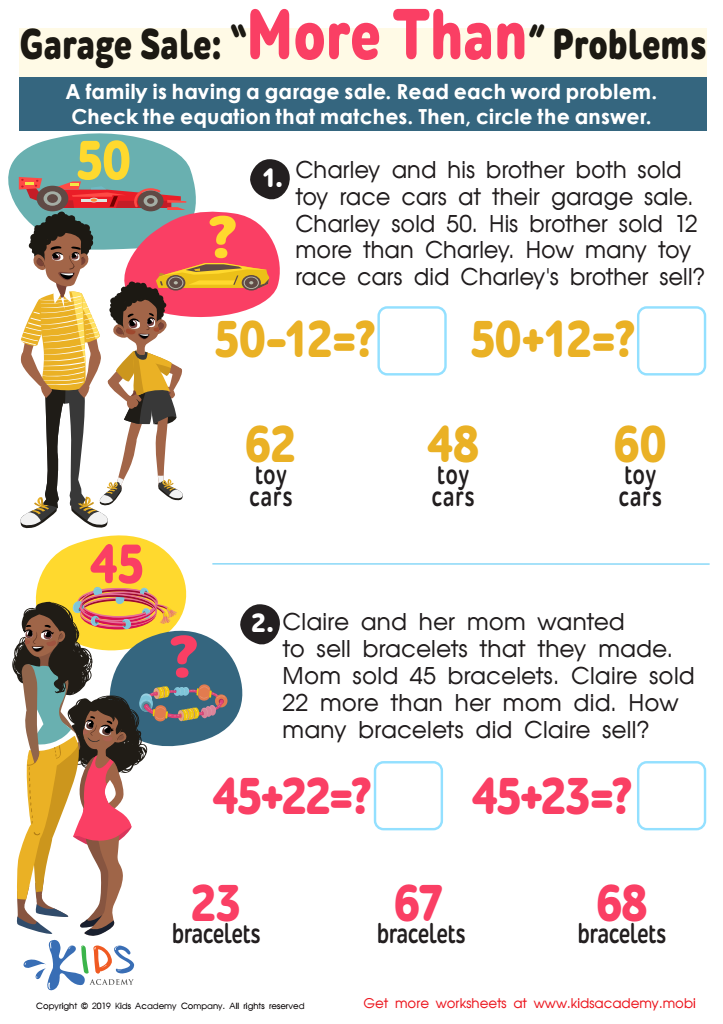

Garage Sale - More yhan Worksheet
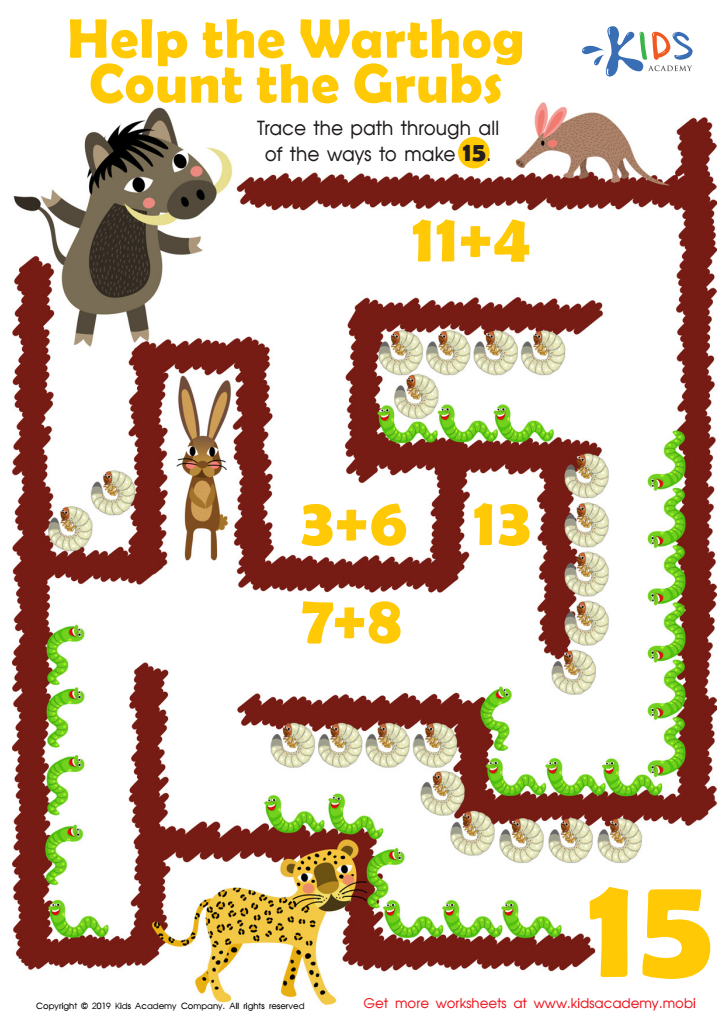

Help the Warthog Count the Grubs Worksheet
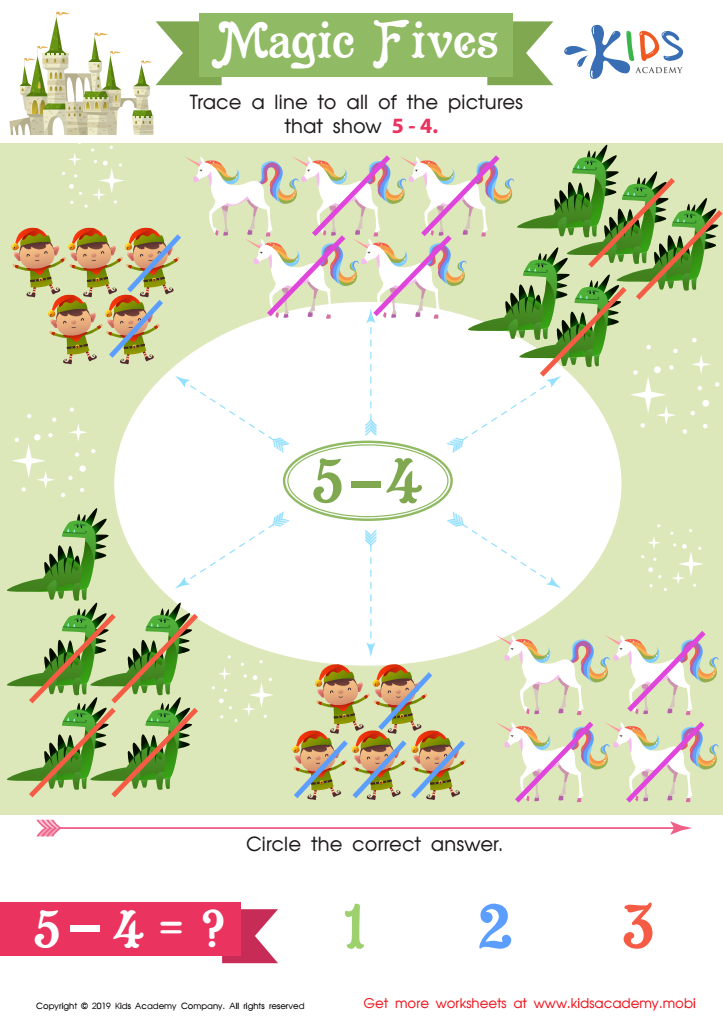

Magic Fives Worksheet
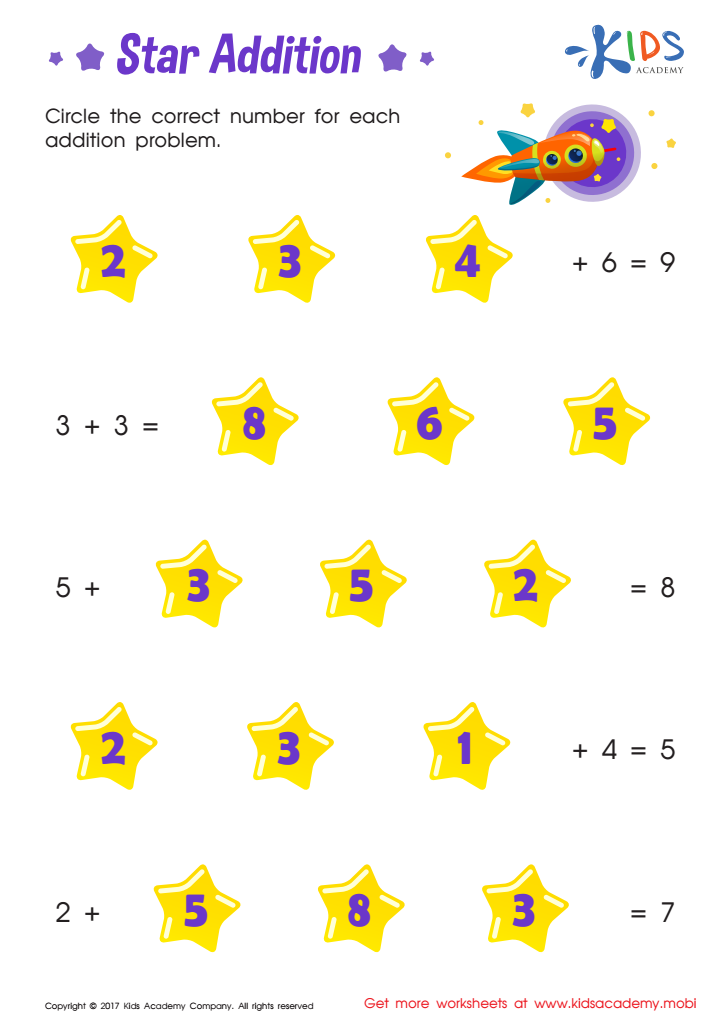

Star Addition Printable
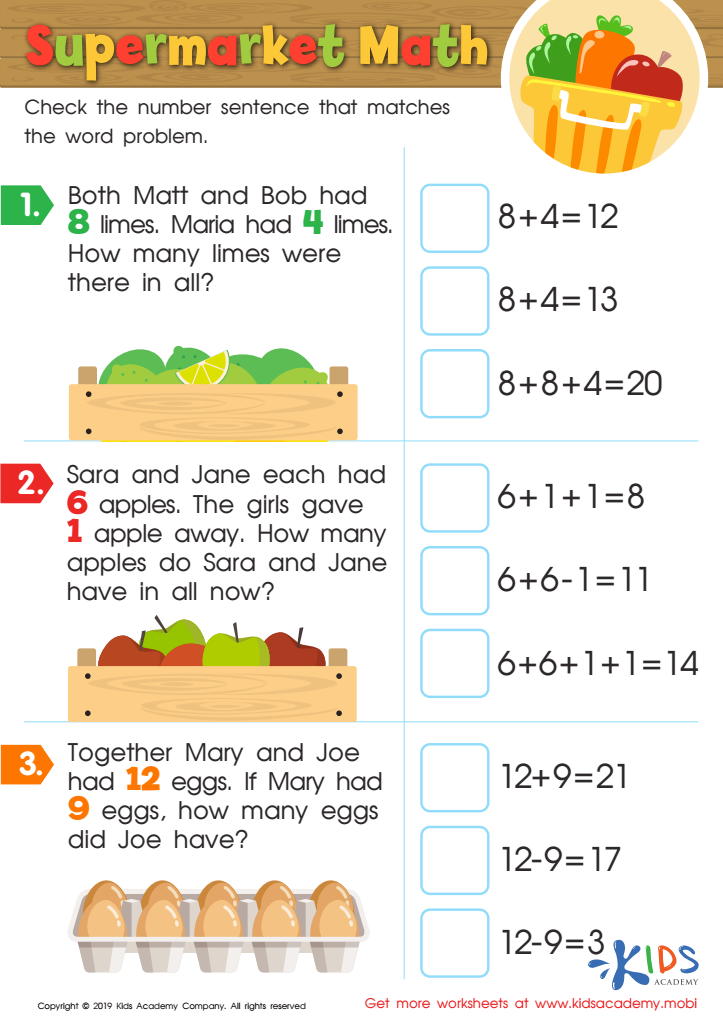

Supermarket Math Worksheet
Parents and teachers should prioritize teaching basic arithmetic—particularly normal addition and subtraction—to children ages 4-8 because these foundational skills form the bedrock of future mathematical learning and everyday problem-solving abilities. During these early years, children's brains are highly receptive to new information and can absorb concepts that will support their cognitive development. Having a solid grasp of addition and subtraction sets the stage for more complex mathematics, such as multiplication and division, which will be introduced in later grades.
Understanding basic arithmetic is not only crucial for academic success but is also essential for daily life. Children use math skills in everyday situations such as sharing toys, distributing snacks, or figuring out how many days are left until a special event. These real-life applications make learning tangible and relevant, thereby reinforcing their skills.
Furthermore, mastering these fundamental concepts boosts children's confidence and encourages a positive attitude towards mathematics, which can help alleviate math anxiety in later years. Early success in math can lead to a strong sense of achievement and build a lifelong love for learning.
In summary, early arithmetic proficiency is imperative for educational progression and practical decision-making, making it a critical focus for educators and parents striving to support a child's overall development.
 Assign to My Students
Assign to My Students





















